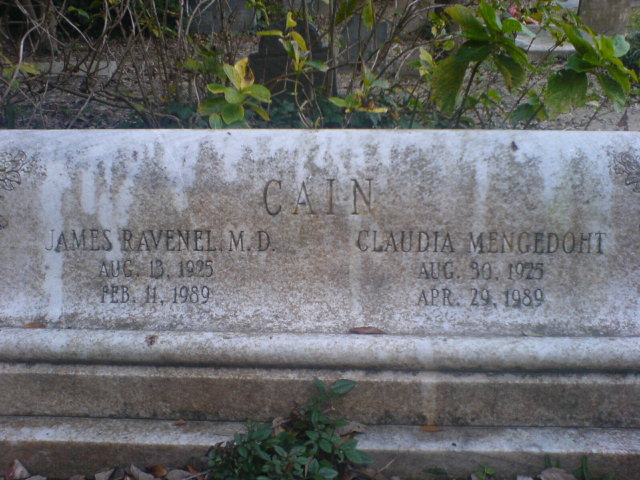We Will Be Heard
 Article Summary from the Christian Science Monitor: African’s Newest Form of
Article Summary from the Christian Science Monitor: African’s Newest Form of
Dissent: Blogs
By
Varo Borja
This article from the Christian Science Monitor discusses the use of blogging as a means for residents of Sub-Saharan African nations to voice their opinions on local, national, and regional events, and even voice dissent against their respective governments. The article opens with some comments from a Congolese blogger named Cedric Kalonji. Mr. Kalonji states, in regard to his blog, “I am Congolese and I talk about what is happening around me—the truth.” Mr. Kalonji’s blog is on congoblog.net, and is:
read by thousands of people around the world…it [sic] receives about 250 pageviews per day and has won international awards including the prestigious Best of Blogs award for the top French-language blog in 2007.
Mr. Kalonji states in the article that blogging provides a means of voicing his opinions about the state of the Congolese government that wouldn’t be afforded to him in any other manner. The article goes on to state that Bob LaGamma, director of a Washington-based advocacy group named Council for a Community of Democracies, supports these efforts by African bloggers as a means of exercising free speech. However, some of the recent African blogs go beyond free speech and delve into the realm of propaganda, such as the Niger rebel group, Movement of Nigeriens for Justice. Another rebel group makes its news known to the world on a blog found at makaila.over-blog.com, where posts are made on developments in the country of Chad, some of the posts calling for the deposition of the Chadian president, Idriss Deby. A tale of heroism and determination comes from the blogger responsible for the makaila.over-blog.com site, Makaila Nguebla, who sleeps next to his computer and takes phone calls and text messages twenty-four hours a day in support of the Chadian rebels. Mr. Nguebla states in the article that the Chadian government is, “not happy about his blog”, but he will post anything that, “serves to destabilize the regime.”
On a more disturbing note, Africa expert Leonard Vincent states that, “while expanding freedom of speech in Africa is important, some opposition and rebel blogs are taking it [blogging] too far.” Mr. Vincent states that, in particular, the political blogs in Sub-Saharan Africa publish, “whatever they want—full of libel, defamation, violence, [and] sometimes very graphic images.” However, Mr. Vincent states that the African governments, for the time being, have much more important issues at hand, and haven’t really begun to suppress blogs of dissent in the region. He does state that as the internet becomes a ubiquitous feature of African daily life, as it has in the west, the repressive regimes of the Sub-Saharan region will become increasingly more intolerant and belligerent towards these bloggers, who with enough pageviews per day, could lend a hand in either the elimination of tyranny or the continuance of the same in the Sub-Saharan region.
For further analysis, I have chosen to compare the situation of the bloggers in Sub-Saharan Africa to the arguments of Stephen D. Krasner and Kimberly Weir in their article on the survival of the sovereign state titled, “Will State Sovereignty Survive Globalism?”. Stephen D. Krasner states in “Will State Sovereignty Survive Globalism?” that, “states are better able to respond [to threats to their sovereignty] than in the past.” This is a double-sided statement, because, according to the Christian Science Monitor article, the Sub-Saharan states are aware of African bloggers, but aren’t taking any real steps to suppress them. Mr. Krasner also states that, “the impact of the global media on political authority (the so-called CNN effect) pales in comparison to the havoc that followed the invention of the printing press.” Is the lack of action on the part of the African authorities a sign that the bloggers of the Sub-Saharan region aren’t causing enough “havoc” to merit a crackdown? According to the article, the authorities were completely aware of Mr. Nguebla’s blog, but had only threatened him with censorship; a mild form of punishment considering the usual savagery displayed by Sub-Saharan leaders. Or are the African authorities afraid of global repercussions for the suppression of the dissenting blogs, like Mr. Nguebla’s, because of their worldwide readerships? According to Kimberly Weir’s argument (that state sovereignty will not survive Globalism) in “Will State Sovereignty Survive Globalism?”, “communications have been chipping away at the state since the printing press was invented.” Ms. Weir also states that the proliferation of technology, especially of the internet, will continue to threaten state sovereignty because technology puts power in the hands of the erstwhile disenfranchised and powerless denizens of nations like Chad and Zimbabwe, and makes the suppression of political dissent, within a sovereign state, more difficult. The question is then, is blogging chipping away at state sovereignty enough to merit widespread suppression? This too is a double-sided query, answerable depending on the time frame in question. In the Christian Science Monitor article, Mr. Leonard Vincent states that the issue of dissenting blogs in Sub-Saharan Africa, for the time being, is a minor issue, but in the long term, he expects to see the widespread suppression of dissenting blogs there, in full accordance with the characters of Sub-Saharan rulers. This statement lends credence to both arguments, with the lion’s share going to Ms. Weir, who in the long term, will most certainly be proved correct.
My thoughts on this issue, as a blogger myself, are in support of free speech everywhere, but with the responsibility of telling the truth. I do not agree with the practice of needless defamation, or the proliferation of violent scenes across the web where children may view them carelessly. However, I visited the two blogs mentioned in the article (m-n-j.blogspot.com and makaila.over-blog.com) and found them to be quite harmless, if a little too politically charged. I read very little French, but the m-n-j.blogspot.com blog featured mostly name calling, red-ink propaganda, and harmless pictures of freedom fighters arrayed in battle garb. The makaila.over-blog.com blog seemed to me more intelligent and better put together, and featured what seemed to be insightful, concise articles and commentary on the state of the Chadian government. I found nothing in either blog that was objectionable, let alone reprehensible, or unworthy to be viewed by anyone surfing the web. I also feel that, with the current tyrannies in existence in the Sub-Saharan region, political defamation, in most cases, would be an inappropriate term when connected with the rulers of Chad, Niger, and Zimbabwe. I believe, like Malcolm X and the Chadian blogger Makaila Nguebla, that political freedom, equality, and justice, must be attained for all people by “any means necessary”, and I applaud the determined efforts of Mr. Nguebla and his associates throughout Sub-Saharan Africa for their non-violent, expressive means of achieving those goals.





